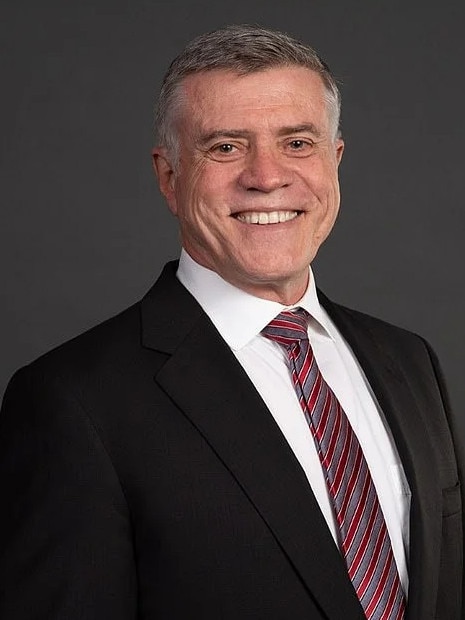Former PwC partner Paul McNab points the finger at international links to tax scandal
A former PwC Australia partner has named an American heavyweight within the firm allegedly linked to its tax leaks, potentially broadening the scandal to its international offices.

A former PwC Australia partner has revealed for the first time the identity of a key international figure in the firm allegedly linked to its tax leaks, naming an American tax heavyweight in a move that opens the door for the scandal to spread to the firm’s global arms.
Former PwC partner Paul McNab alleges PwC International Washington National Tax Services partner Matthew Chen received allegedly confidential Australian government tax information in 2014 in part of a suite of emails detailing reform plans.

Striking back in his court filings, Mr McNab alleges PwC’s attempts to pin the blame for the tax scandal on himself is deeply flawed, warning he did not know information shared by PwC’s head of international tax Peter Collins was confidential.
But he warns if Mr Collins was sharing confidential information with others in the firm, a number of current and former partners in PwC Australia and its global arms were also given access to internal government secrets.
This comes as PwC and Mr McNab prepare to face down in the NSW Supreme Court, after the firm settled claims from three other partners linked to its response to the tax scandal.
Mr McNab was removed from PwC’s partnership retirement scheme in the wake of public revelations about the tax scandal, and he launched legal action in an attempt to clear his name and restore his benefits.
In a post on social media Mr McNab said PwC had attempted to suggest “that I, a single partner in the Australian firm operating under direct instruction from senior PwC partners in Australia and internationally, am solely responsible for the significant reputational damage caused by the ‘PwC tax scandal’ over the past two years”.
“That damage was caused by allegations of breach of confidentiality obligations by partners who had them, and the utter failure of significant parts of the firm’s management to properly respond to these allegations and related issues,” he said.
“For the record, I did not sign a confidentiality agreement with the Australian Treasury or the Australian Tax Office, I always operated as directed by senior management within PwC, and I have never provided a single client with advice that was contrary to Australian taxation law or was unprofessional.”
Mr McNab, who worked at PwC for 23 years, said he trusted information shared with him was “not subject to confidentiality”, noting although he received a number of emails from Mr Collins, he “believed that Collins was not disclosing, and would not disclose, to McNab any information that Collins was obliged to keep confidential”.

Mr McNab notes if this information was confidential, then a string of other PwC staff could be embroiled in the tax scandal after being shared inside information.
Responding to PwC’s claims, Mr McNab identifies at least 15 emails and a string of partners at the firm, including for the first time several members of the international arm of the firm, who allegedly received confidential information. The Australian is not suggesting these PwC staff received confidential information, only that an allegation has been made by Mr McNab.
Mr McNab points the finger at Mr Chen, saying he received an email in February 2014 detailing “possible options for addressing the tax challenges raised by the digital economy” in response to the Base Erosion and Profit Shifting changes in play in Australia.
This came as PwC was targeting new business with American tech giants, including Uber and Facebook owner Meta, that would be affected by looming new taxes.
Mr McNab said this email was one of a string sent by Mr Collins to other partners at PwC America and UK in which allegedly confidential information was shared.
Detailing his response to PwC’s attempts to launch a counter claim against him, Mr McNab notes a July 2015 email from Mr Collins to PwC Australia transfer pricing and international tax partner Nick Houseman, as well as former partners Pete Calleja and Michael Bersten that detailed an update on the “Google tax”.
Mr McNab says an email about the Google tax was also sent to two PwC internal mailing lists of staff, as well as Mr Bersten and Nick Middleton, around this time. He also notes an email sent to then tax partner Lyndon James, who previously worked in the transfer pricing business before retiring in March this year.
Mr McNab details a string of other emails sent by Mr Collins to US and UK partners as well as several other Australians in the firm, including Robert Hines, Greg Weickhardt, Michael Bona, Michael Taylor, and Stuart Landsberg.
However, Mr McNab notes “only limited documents available to him regarding the tax scandal, the confidential information that was provided to Collins, the confidential information that was shared by Collins or others”.

Two parliamentary committees that investigated the PwC tax scandal have previously called for information about who was connected to the breaches of confidentiality by Mr Collins.
PwC has previously admitted at least six members of the international arm of the firm received information from Mr Collins connected to the tax scandal, but noted they did not know it was confidential.
The firm said these staff “should have raised questions as to whether the information was confidential”, noting some had been disciplined but they remained with the firm.
The Australian Federal Police is investigating the confidentiality breaches, recently revealing four former partners, including some overseas, were facing probes over the leaks.






To join the conversation, please log in. Don't have an account? Register
Join the conversation, you are commenting as Logout